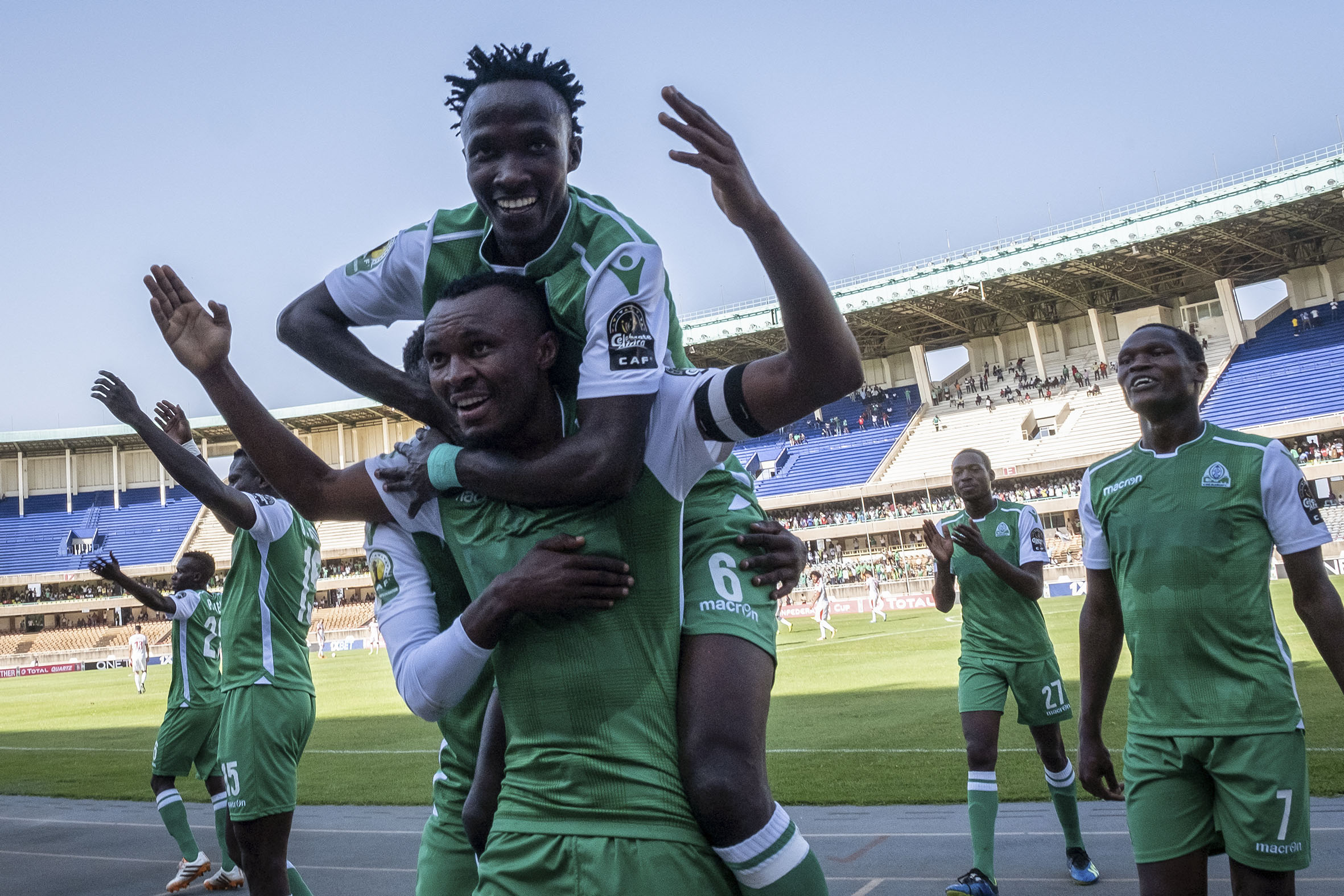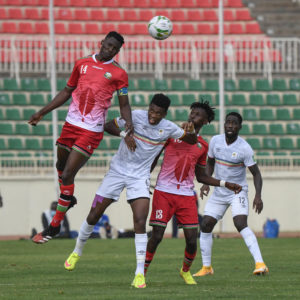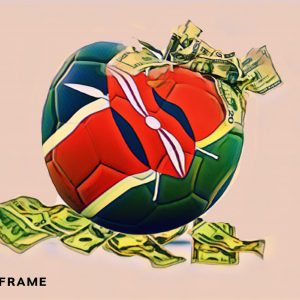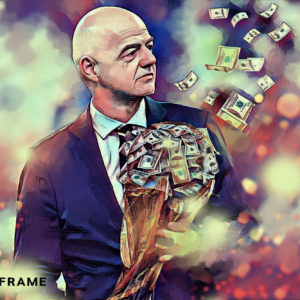Can Gor Mahia return to their glory days?
The Kenyans once were African club champions, but they endured embarrassing lows of late, including fighting to avoid relegation. Those close to the club share what needs to be done for them to rea…
Author:
19 January 2022

Kenyan club football was thrust into continental limelight on 5 December 1987. On that day in Nairobi, a locally assembled Gor Mahia FC punched above their weight to edge out Tunisian behemoth Espérance Sportive de Tunis to win the African Cup Winners’ Cup.
The Confederation of Africa Football (CAF) christened that year’s second-tier club championship for national cup winners the Mandela Cup to support the global push for the release of the anti-apartheid icon, who had served 24 years in prison by then.
Almost four decades since that triumph, Kenyan and East African football have been imprisoned by mediocrity, with no club tasting continental success. K’Ogalo, as Gor Mahia are nicknamed, are thus still the benchmark for that in the region. This is despite enduring a rough journey that saw them at one point stare at relegation in the domestic league. It was a dramatic fall from grace for a club that only knew one thing since their inception in 1968: dominance.
Related article:
With Gor Mahia still dogged by past challenges, notably a lack of finances, it’s hard to see them fully recovering and regaining their lost glory days. They have, however, won several domestic honours more recently and reached the quarterfinals of the 2019 CAF Confederation Cup, as the Mandela Cup is now called.
The 1987 win was no fluke. It was the culmination of years of consistent forays into CAF’s interclub competitions. K’Ogalo reached the final of the same championship in 1979, but they lost heavily – 8-0 on aggregate – to defending champions Canon Yaoundé of Cameroon in a two-legged encounter marked by claims of bribery, overconfidence, lack of experience and sabotage.
Ambrose Rachier, the club’s chairperson and a renowned city lawyer, responded with an emphatic “yes, we can” when asked if the club can return to its glory days. “We rely heavily on sponsorship money, which is not enough. A lack of finances coupled with a hostile federation that does not support us have made it difficult for us to do well in continental football,” Rachier added.
What’s been going wrong
As one of the two biggest clubs in the country, the other being their nemesis, AFC Leopards, Gor Mahia have a long history of feuds with football authorities, especially when fans cause chaos in the stadium resulting in fines.
Recently, the club had run-ins with the Football Kenya Federation (FKF) over issues ranging from the timing of their fixtures and choice of match venues to money for television rights. “All clubs are equal before the federation. It doesn’t matter whether you’re big or small,” former FKF president Nick Mwendwa once said.
According to the 1987 winning captain, Austin “Makamu” Oduor Origi, all forces – from a committed fan base to a supportive government that catered for the team’s logistics and allowances – worked together for the club’s success.
Because Kenya’s football at the time was at amateur level, clubs did not pay salaries. Most players, particularly from Gor Mahia and Leopards, were employees of different government corporations and only played part-time, for allowances and because it made them proud. This created a semblance of stability that ensured that the two giants could retain their best talent, and there were far fewer or no player-management disputes.
Related article:
“We had a mature squad of an average age of 25. Discipline was tip-top and a sense of respect among the players prevailed. There were no strikes and whenever issues arose, they were channelled through the captain, who engaged the executive for solutions,” said Makamu, an uncle to Liverpool striker Divock Origi.
He blames Gor Mahia’s misfortunes in Africa after 1987’s success on the club’s decision to turn semi-professional at a time when they had not set up the necessary structures for self-sustainability. The swift change was forced by a decision by state corporations to recall their employees who were featuring for clubs other than their own. Most of the parastatals at the time had set up their own football teams and were angling to do well in the domestic league.
“The club could not sustain a huge wage bill, leading to constant sour labour relations and the eventual mass exodus of players,” said Makamu. The late Sammy “Jogoo” Onyango – a winger and a notable figure for Gor Mahia in the Mandela Cup campaign alongside Peter Dawo, the tournament’s top scorer – was among the players who ditched K’Ogalo for their employers’ teams.
Chaos and money woes
Player revolts over officials’ unkept promises continue to afflict the club’s rise from the ashes, with players often picking the most critical moments to down tools in order to be heard. Having made the quarterfinals of the 2018-2019 CAF Confederation Cup, there was cautious optimism of reliving the sweet memories of 1987, but a go-slow owing to non-payment stunted Gor Mahia’s performance in the first leg against Morocco’s RS Berkane in Nairobi. They lost the tie 2-0 before being humbled 5-1 in Berkane.
A number of senior players refused to go to camp prior to the crunch tie, with the coach almost failing to raise a quorum a few hours to kick-off as dignitaries thronged the Kasarani Stadium to witness what would have been history in the making.
The return match was equally chaotic, and shambolic logistics saw the team sleep on the cold floor of Doha International Airport en route to Berkane. Despite the challenges, the noticeable showing in the tournament that season gave a hint of what Gor Mahia can achieve with better organisation and management.

“A totally different level of organisation is needed for Gor Mahia to reach the pinnacle of African football again, but unfortunately it appears things are getting worse,” reckoned the staunch supporter and blogger simply known as K’Ogalo Pundit.
There is consensus on what Gor Mahia need to do for them to permanently regain their spot at the top table of African football: activate more sources of income so that they can stop relying on sponsorship money, which is not enough to make them financially stable.
“We have made three serious attempts to be financially independent, including fans directly contributing to the club, but we got resistance,” Rachier said. “We’re trying to patent our intellectual property, such as logos and trademarks, so that we can effectively fight the sale of fake merchandise by unscrupulous traders who continue to deny us revenue. We have also amended our constitution to ensure that we are able to bring on board a strategic partner that can invest in the club.”
Amending the laws
Unfortunately, these efforts have amounted to little and the club still banks on well-wishers and the government to plug their ever-leaking budget, especially in the expensive continental campaigns.
According to sports lawyer Elvis Majani, the existing laws under the Sports Act of 2013 are a major stumbling block for Kenyan football clubs.
“For now, sports entities are generally registered as social outfits,” he said. “The registrar of sports should be flexible enough to allow sports entities to register as limited companies in line with modern practices. It’s the only way teams like Gor Mahia will be able to raise enough capital to develop.”
A provision in the act that requires the officials of sports bodies to be citizens is also a hindrance to their development. Addressing the talent pipeline is important too.
Related article:
“Kenya had an elaborate secondary school system supported by the federation that churned out numerous talents for clubs,” said Gor Mahia football director Lordvick Aduda.
“There were also feeder clubs that offered breeding ground for talents from secondary schools. These no longer exist, and the effects can be seen by how Kenyan clubs and national teams have been performing below par in international games.”
Until these problems are addressed and the club become financially sound, Gor Mahia will continue to live in the shadows of their past glory with perhaps sporadic moments of brilliance keeping hopes alive.



